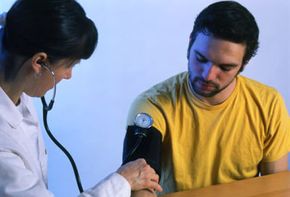High blood pressure is a growing public health problem not only in the United States, but worldwide. Among the people in the United States who have high blood pressure, only 37 percent have the condition under control.
Vasodilator drugs are medications that get their name from the Latin words "vasa," which means "vessel," and "dilate," which means "to make wider." These drugs work by relaxing the smooth muscles that line the walls of blood vessels -- causing the blood vessels to increase in diameter and allow blood to flow through more easily. As a result, the heart doesn't need to work as hard to pump blood through them, and blood pressure is lowered because there's less force in the vessels. Vasodilators aren't a cure for high blood pressure; however, they can help control the condition.
Advertisement
Doctors prescribe vasodilators for the treatment of high blood pressure and angina (chest pain caused by heart disease). Vasodilators can also relieve symptoms associated with heart failure, a condition in which the heart cannot pump enough blood to nourish the cells throughout the body.
High blood pressure is dangerous because it puts stress on the heart and the blood vessels, which, over time, can lead to permanent damage. If untreated, high blood pressure increases a person's risk of having a heart attack or stroke, or developing heart failure or kidney failure.
There are several classifications of vasodilator drugs. Arterial dilators primarily affect arteries, venous dilators work on veins and mixed dilators have an effect on both arteries and veins. Most vasodilator drugs fall into the last category.
Doctors prescribe arterial dilators for high blood pressure and heart failure, but not for angina. Venous dilators are very effective for angina and are sometimes used for heart failure, but they're not used as primary treatment for high blood pressure.
We'll learn more about types of vasodilators on the next page.
Advertisement


